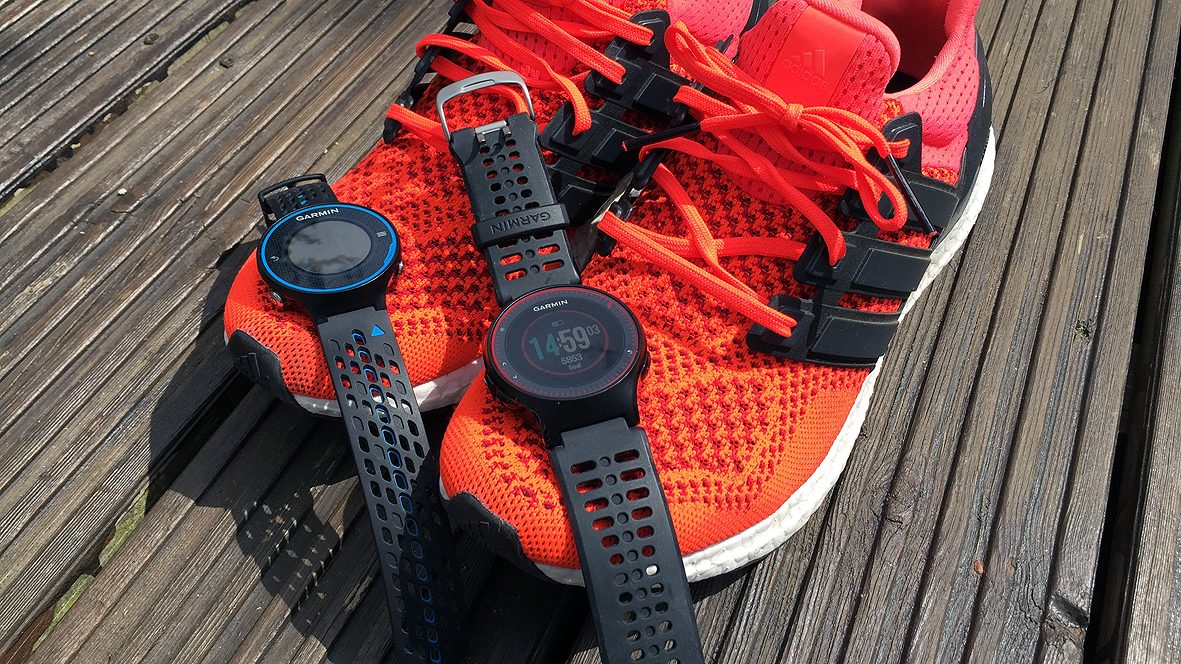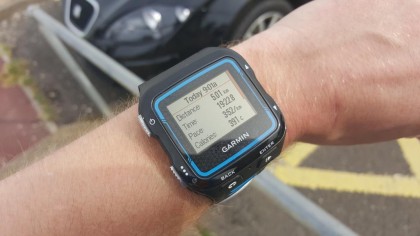Why I can't understand those who don't run with a watch
If you have the data there, why not use it?

I've got a confession to make. I don't really enjoy running. And that's despite doing it six days a week.
I'm not a sadist. I'm not punishing myself for past indiscretions by forcing myself out the door every morning just so I can get to the point of weeping before crawling into a shower.
It's just that I've never had that 'zen' moment that so many runners talk about. The one where people say 'I just had to go for a run to de-stress' or 'I needed to get out of the office to clear my head'. How do they keep going when they're tired? What keeps them lacing up with no goal in sight?
(By the way - this column isn't me saying those that don't track their runs are wrong, or dumb for not doing it. It's just that the notion remains a mystery to me.).
I do love a lunchtime run, but mostly because it breaks the day up and I'm out in the fresh air. I don't love the oxygen from the park, but I assume that being out in it, getting some vitamin D from the sun, is a good thing.
No, the real reason I run is that I'm insanely competitive. I love to do better, try harder, feel like there's a point to what I'm doing. The issue is that I'm not very good at stuff. I love football, but I suck. I'm no great shakes at cycling. And the less said about swimming, the better.
But running is the ultimate competitive sport – you're only trying to beat yourself 95% of the time. Which is why I HAVE to always track my runs.
Get daily insight, inspiration and deals in your inbox
Sign up for breaking news, reviews, opinion, top tech deals, and more.
I've realised this more as I've delved deeper into my stats – I get angry that earlier runs might not be as accurate, coming from stride sensors attached to the shoe or dodgy GPS chips on early smartphones so I can't see how much better I am now having tried to improve for so long.
The lightbulb moment
The first time I strapped on a running watch was in 2013: the Adidas SmartRun. I've talked about it a few times here, but that moment when all the info that was locked away on an unreadable phone screen was now displayed at an easy glance on my wrist was one of the most amazing of my tech life.
Not only that, I now had access to my heart rate as well, being able to see not just how fast I was going, but how hard I was working.
That was it. I was hooked. I had the information I needed to tell me how well I was doing without having to worry about 'feel'. For all those that do just run with their body's own sensors telling them how hard they're working: I just don't get it. I especially don't understand when elite athletes do the same.
Doing things by sense alone is to succumb to not just the vagaries of perception, but to give the demons – those little voices that tell you everything is about to fall apart and you shouldn't be running and you're probably doing long terms damage – no empirical opposition.
There have been countless times in races when I've been toiling away, feeling like I was about to die, and I've looked down and seen that my heart rate is a few beats per minute lower than I was expecting.
Just this morning I was doing my local 5KM Parkrun and was feeling horrendous on the walk to the start. My legs were aching, my stomach turning and I was worried that eating an entire cheeseboard in lieu of dinner the night before was going to possibly get in the way.
However, my plan to hit the first two kilometres hard paid off – I was well ahead of last week's pace, which meant I could relax through the third and fourth kilometres. As the third split buzzed on my wrist, I knew a 4:10 would be acceptable given how well the first two went. Heck, I could even carry a 4:20.

So seeing 3:59 flash up gave me a big grin and the boost I needed to just keep pushing at this pace for a few more minutes until the finish line appeared, giving me my fastest time of 2015 and just five seconds off my best.
That simply wouldn't have been possible without the GPS tracking. I'd have definitely gone a lot slower, panicking that I was going to run out of energy before crossing the line and waiting for my results a few hours later.
I would have missed out on that high that comes with seeing the result straight away, being able to apply fresh memories to the splits to see what worked and what didn't.
OK, I know that even people that hate running with watches or phones use them in races for that same reason, but I don't understand why they don't use the tech in training.
A recent trip through my heart rate stats has told me I'm spending too much time in the 'easy' zone, despite ramping up the distance in the last couple of months – which means I'm wasting time on junk miles, when I could be either resting or pushing harder, both of which would be more beneficial than just pootling around at a low intensity.
People say 'If you're using technology, you're missing out on the joy of running'. But I find no joy in just the simple act of being out and running. The whole time I'd rather be at home watching the TV, or spending time with other people, or even just walking… basically just 'not-running', because when you boil it down, where's the joy in stressing your body?
The whole point of running to me is to get out there and show myself that I can do something and improve, to make a difference – and having the machinery to do it is the only way to get that.
- If you've got any tips, tech you want tested out or just want to mock me, I'm @superbeav on Twitter, and you can see my stumblings on Strava too.
- If you want to see more data, follow me on Smashrun - if you want to sign up, please use this link - once you see the service, you'll work out why...
- Read the rest of the Running Man of Tech story here

Gareth has been part of the consumer technology world in a career spanning three decades. He started life as a staff writer on the fledgling TechRadar, and has grew with the site (primarily as phones, tablets and wearables editor) until becoming Global Editor in Chief in 2018. Gareth has written over 4,000 articles for TechRadar, has contributed expert insight to a number of other publications, chaired panels on zeitgeist technologies, presented at the Gadget Show Live as well as representing the brand on TV and radio for multiple channels including Sky, BBC, ITV and Al-Jazeera. Passionate about fitness, he can bore anyone rigid about stress management, sleep tracking, heart rate variance as well as bemoaning something about the latest iPhone, Galaxy or OLED TV.